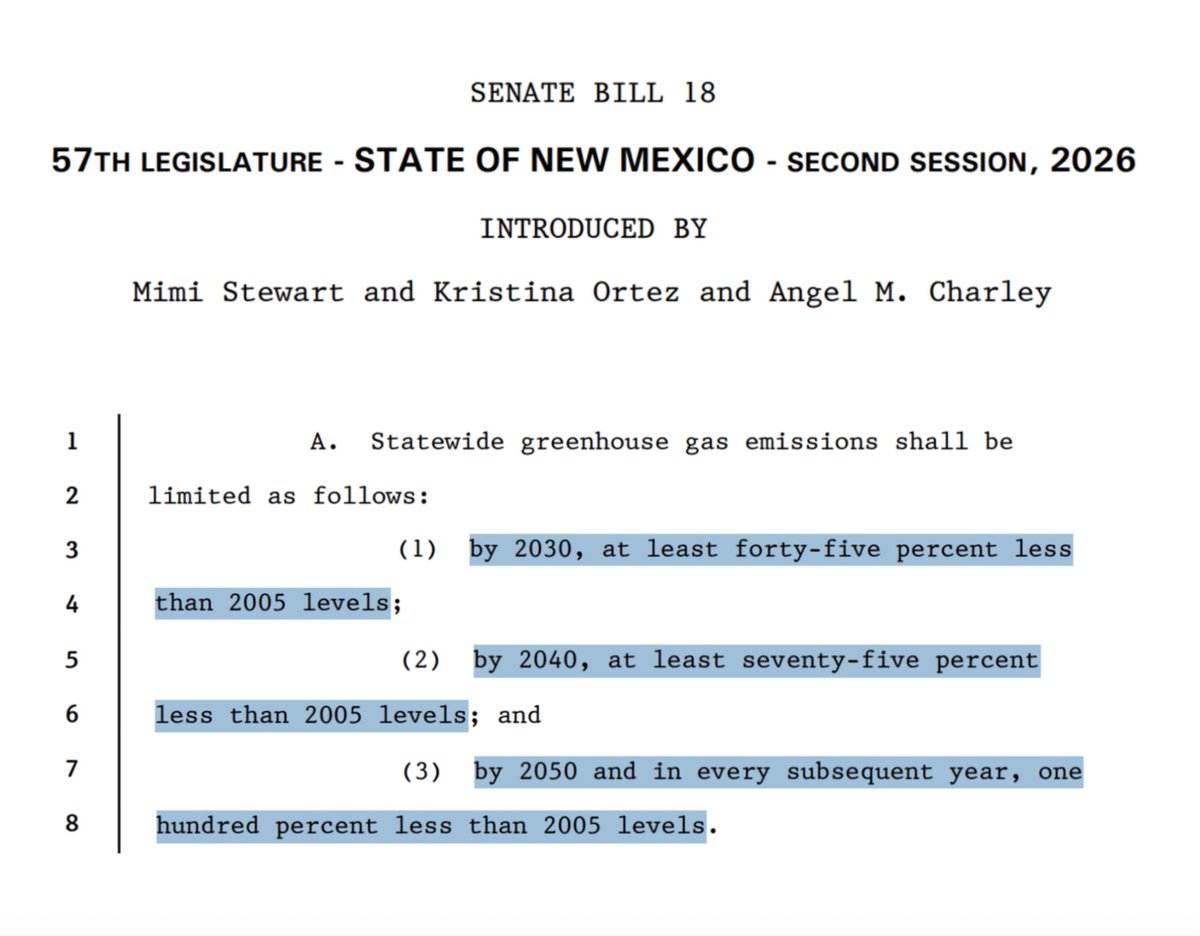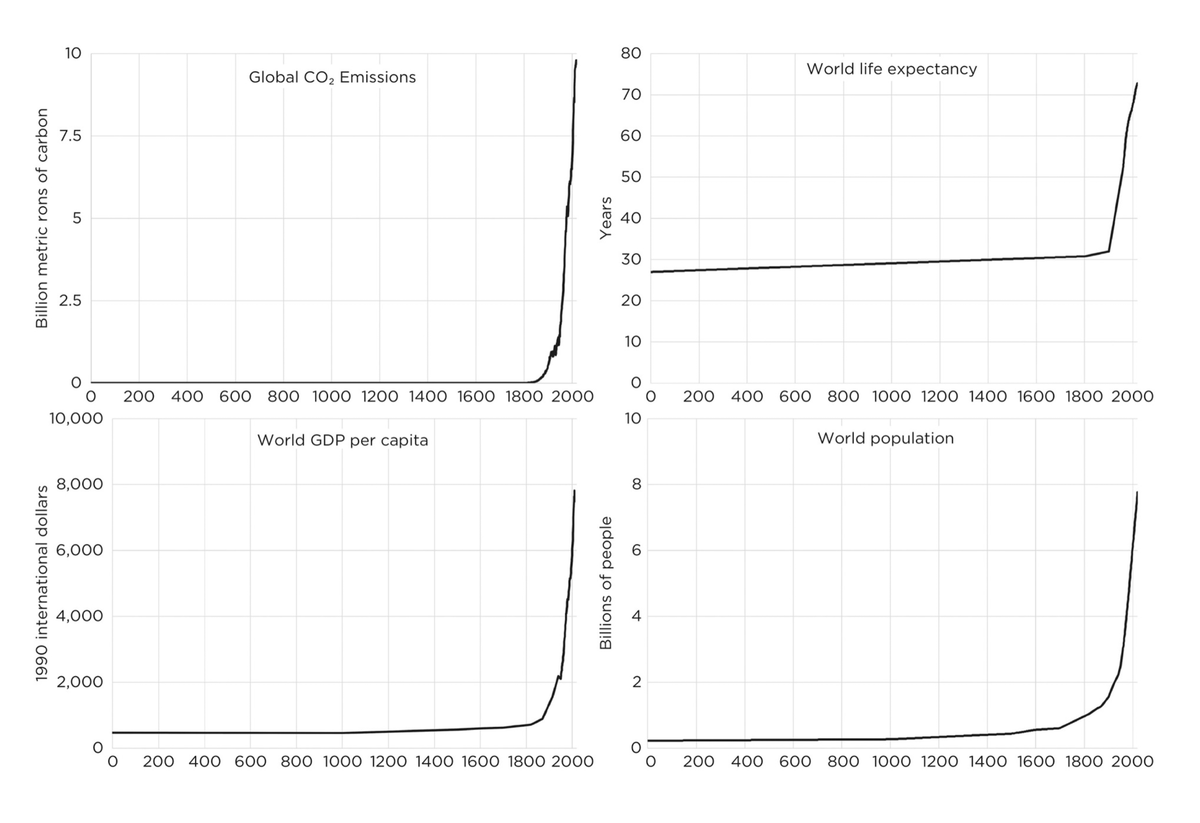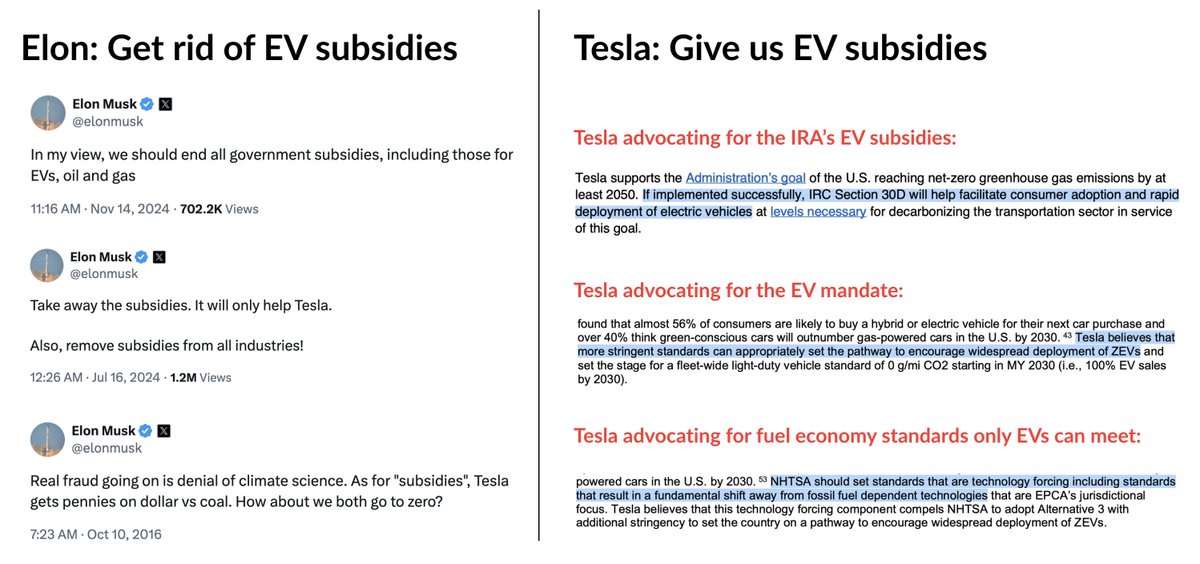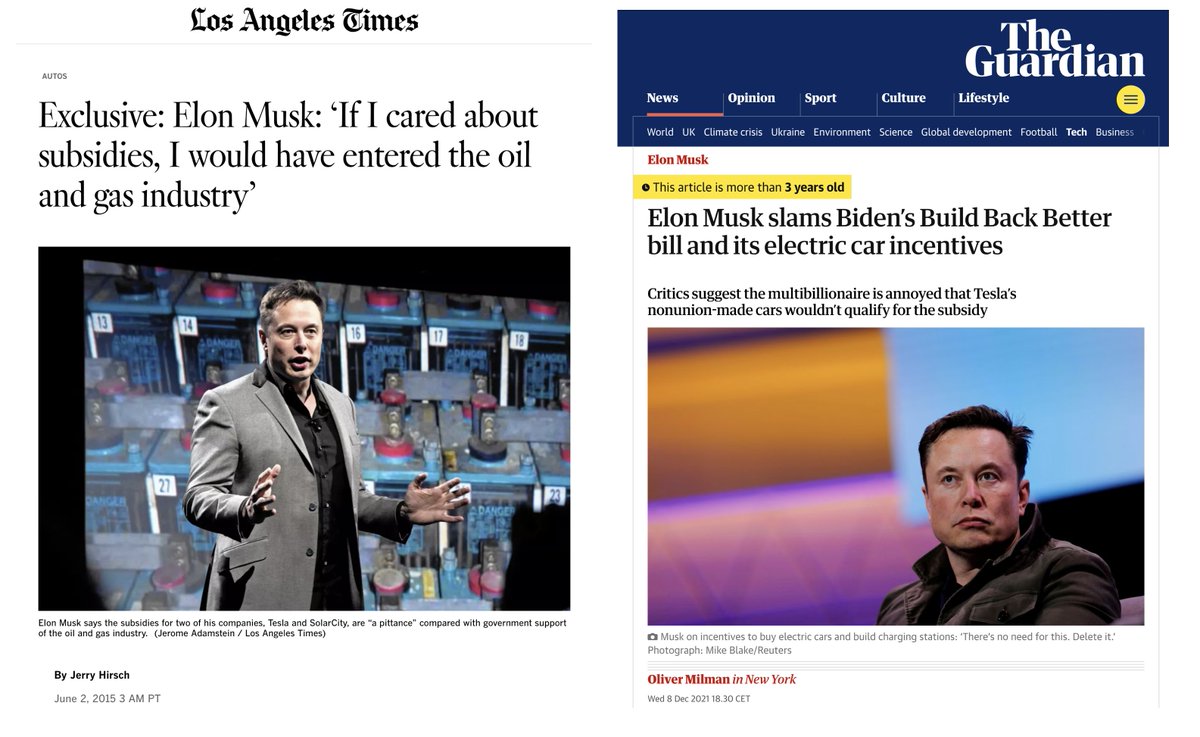You may have noticed that the media aren't covering the Great Barrier Reef much this year, after reporting its imminent death incessantly for years. The reason is not no news but good news. The GBR has been rapidly improving—which doesn't fit the catastrophist agenda.
THREAD

THREAD
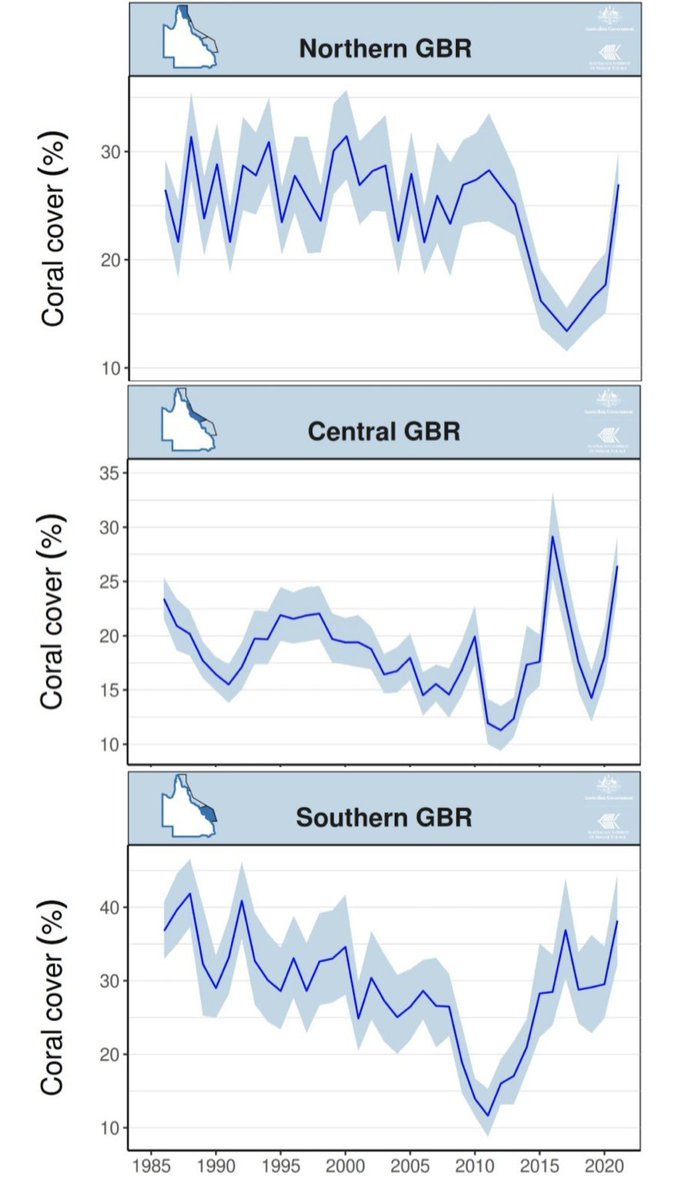
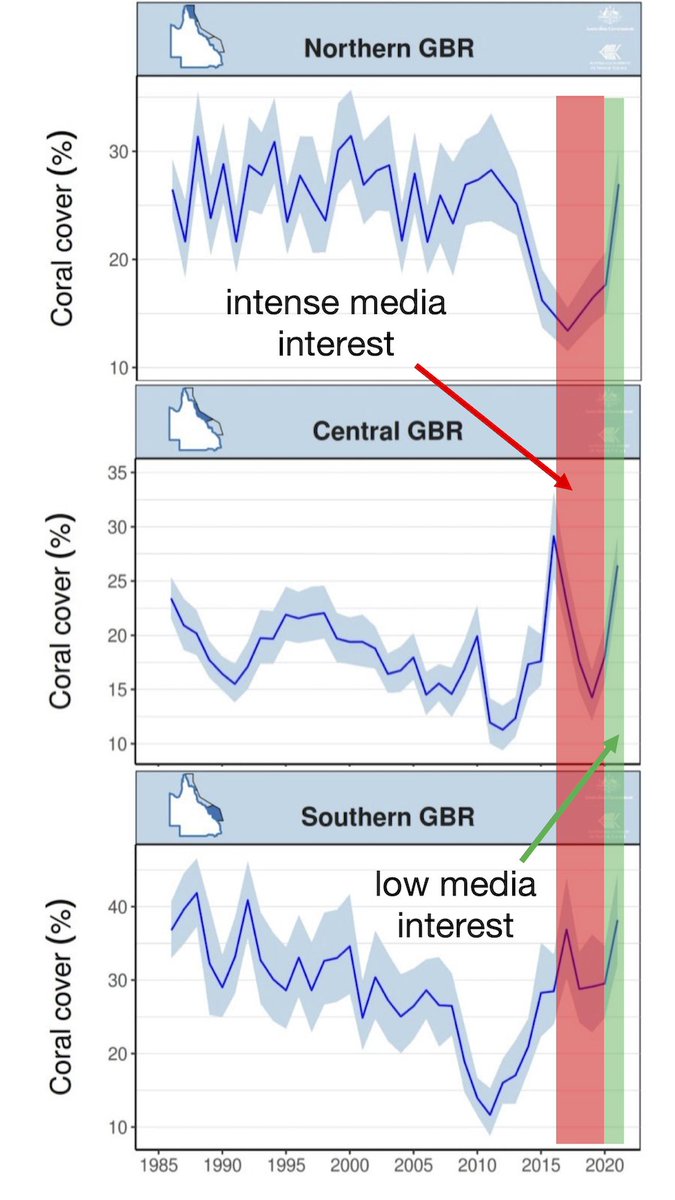
The New York Times has for years been “reporting” on the Great Barrier Reef with these ominous headlines. Yet now that the reef has been dramatically improving, @nytimes is mute. My research team has been unable to find one story about the GBR’s improvement. 




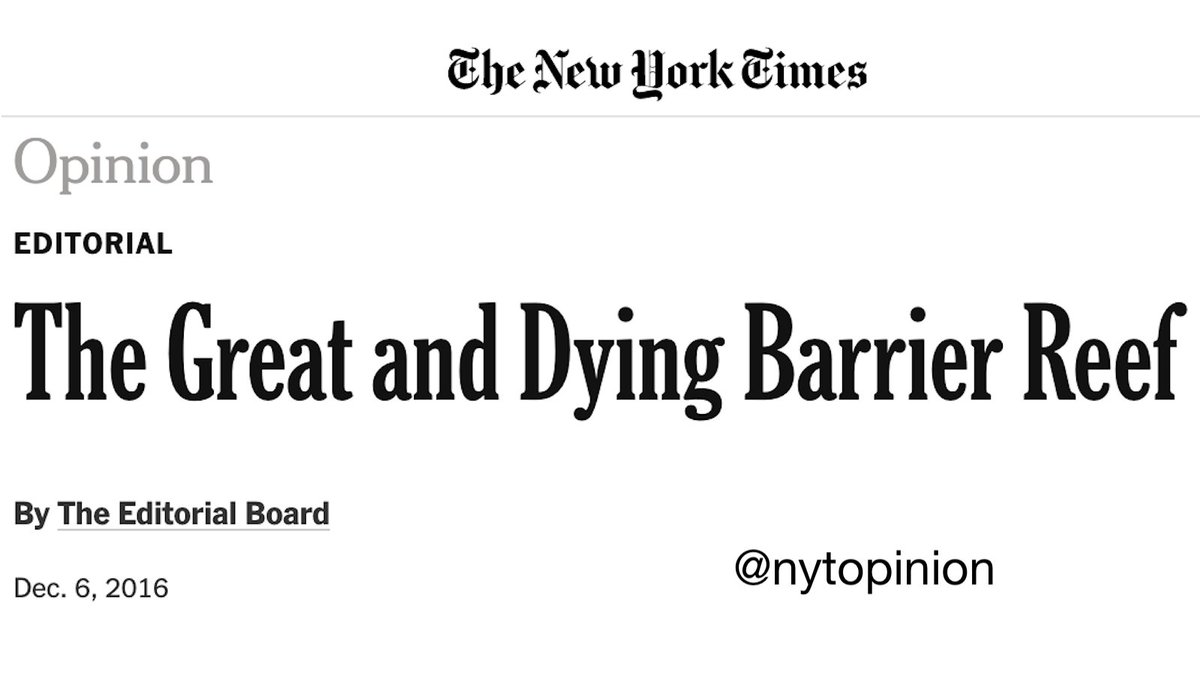
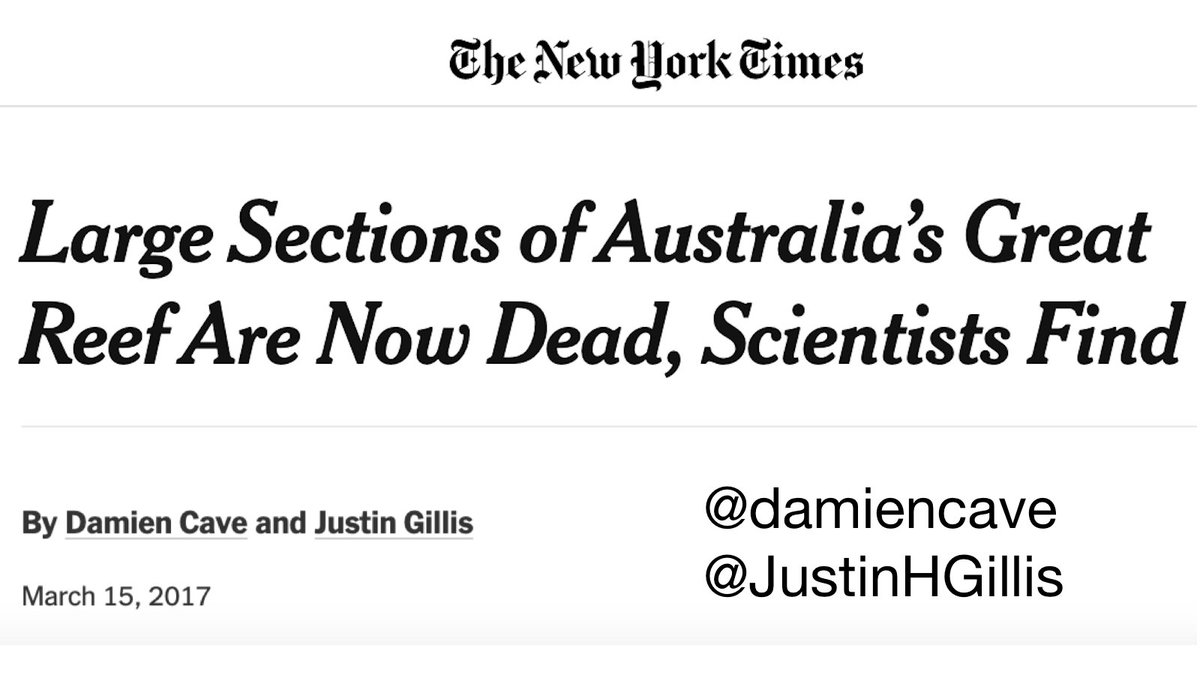
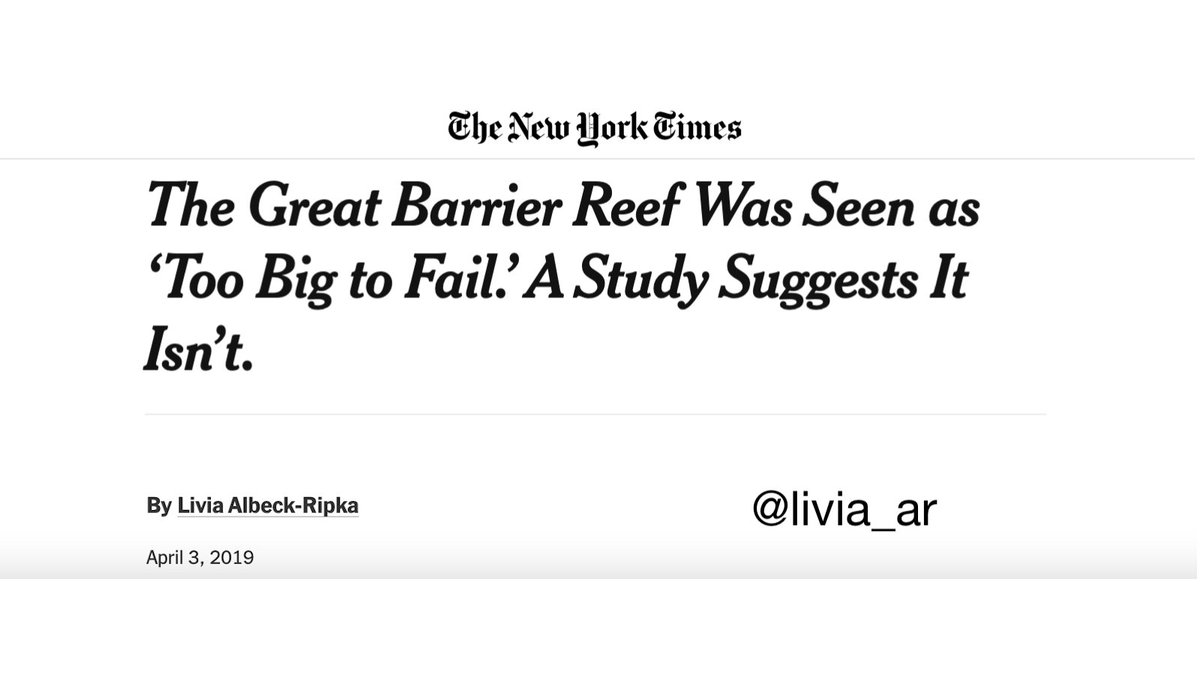
Readers of The New York Times, I encourage you to reach out to @nytopinion and @nytimes climate reporters @jwilliamsNYT @damiencave @JustinHGillis @livia_ar and ask "Why are you denying the improvement of the Great Barrier Reef by not covering it?"
aims.gov.au/reef-monitorin…

aims.gov.au/reef-monitorin…
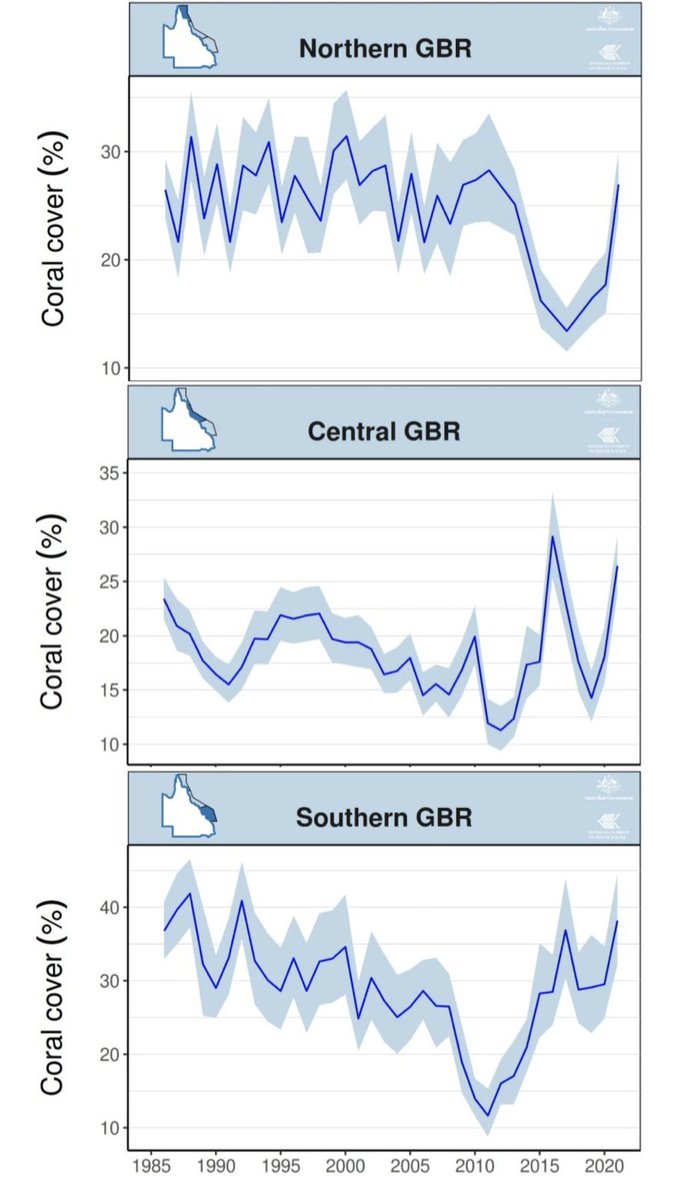
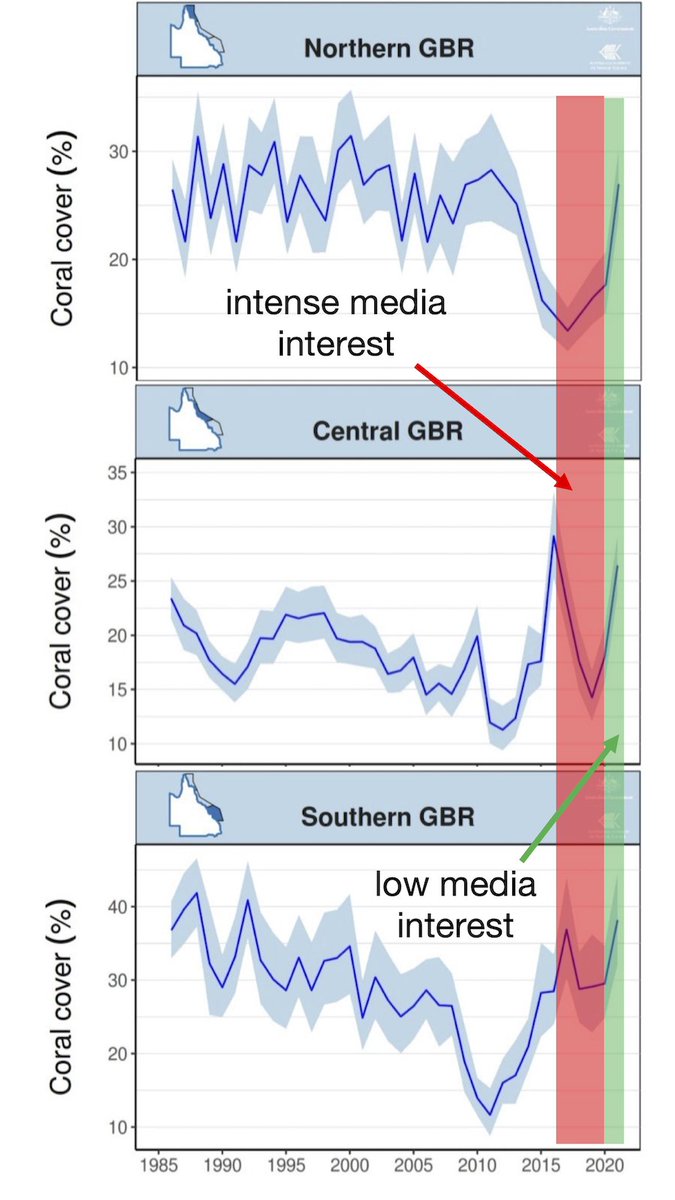
The Washington Post has, like the Times, been "reporting" on the Great Barrier Reef with ominous headlines for years. And they, too, aren't reporting at all on the reef's dramatic improvement. Why is the improvement of the Great Barrier Reef not news, @WashingtonPost? 



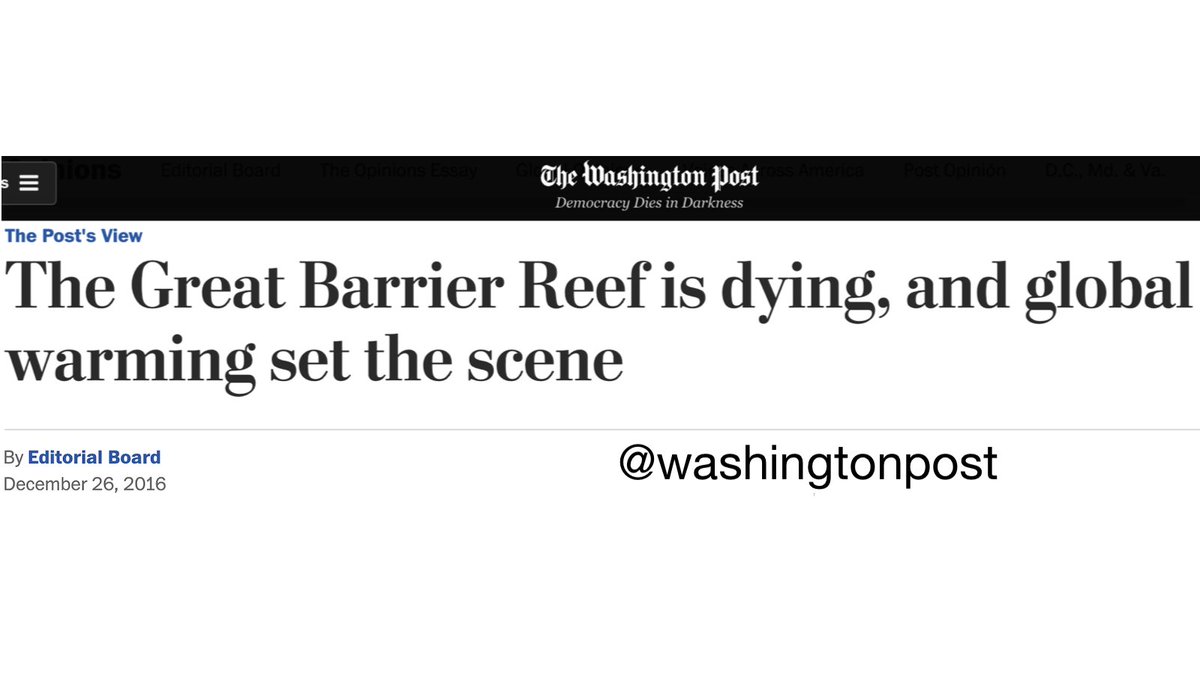
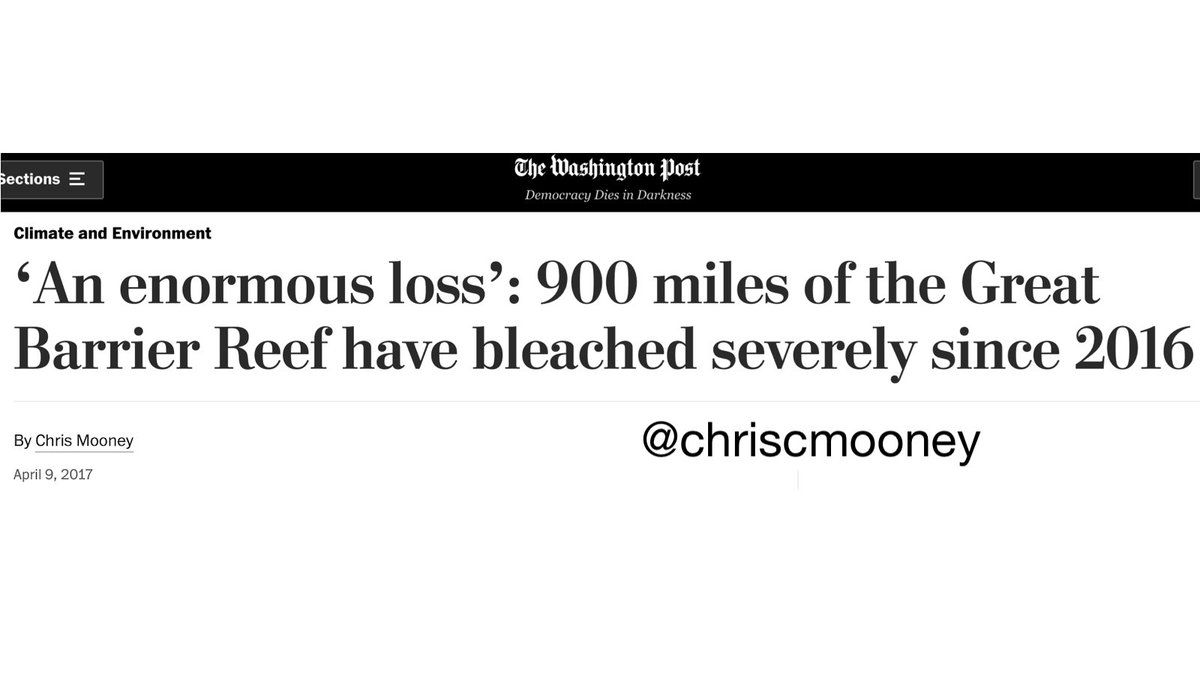
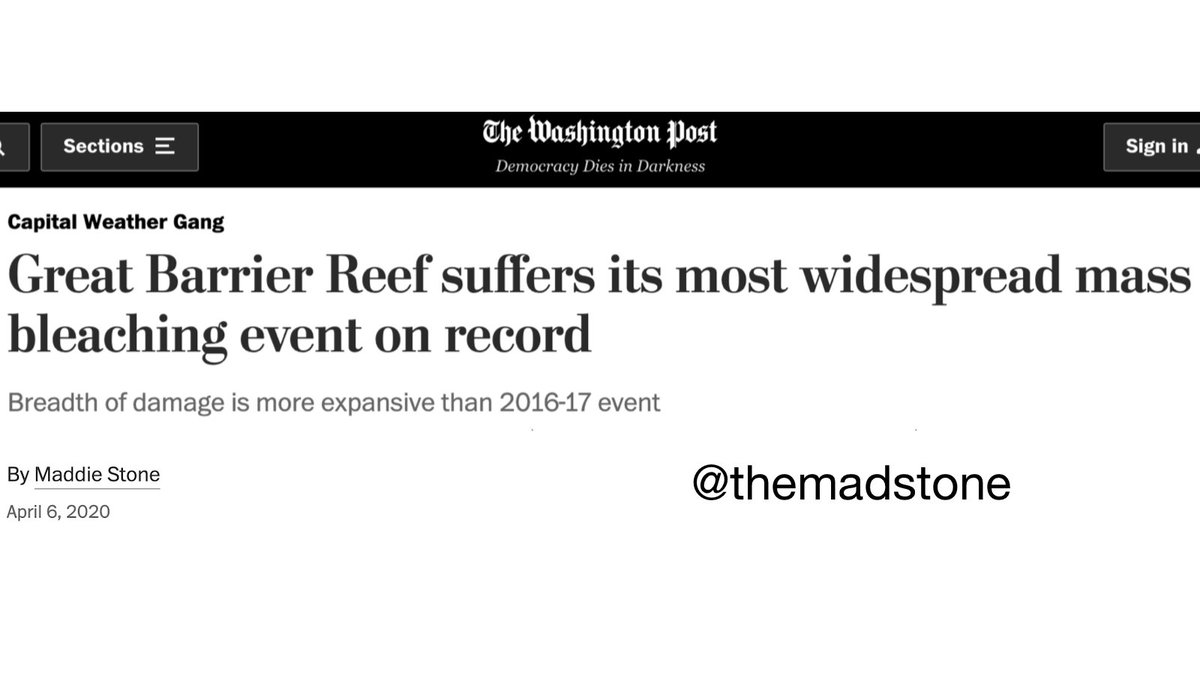
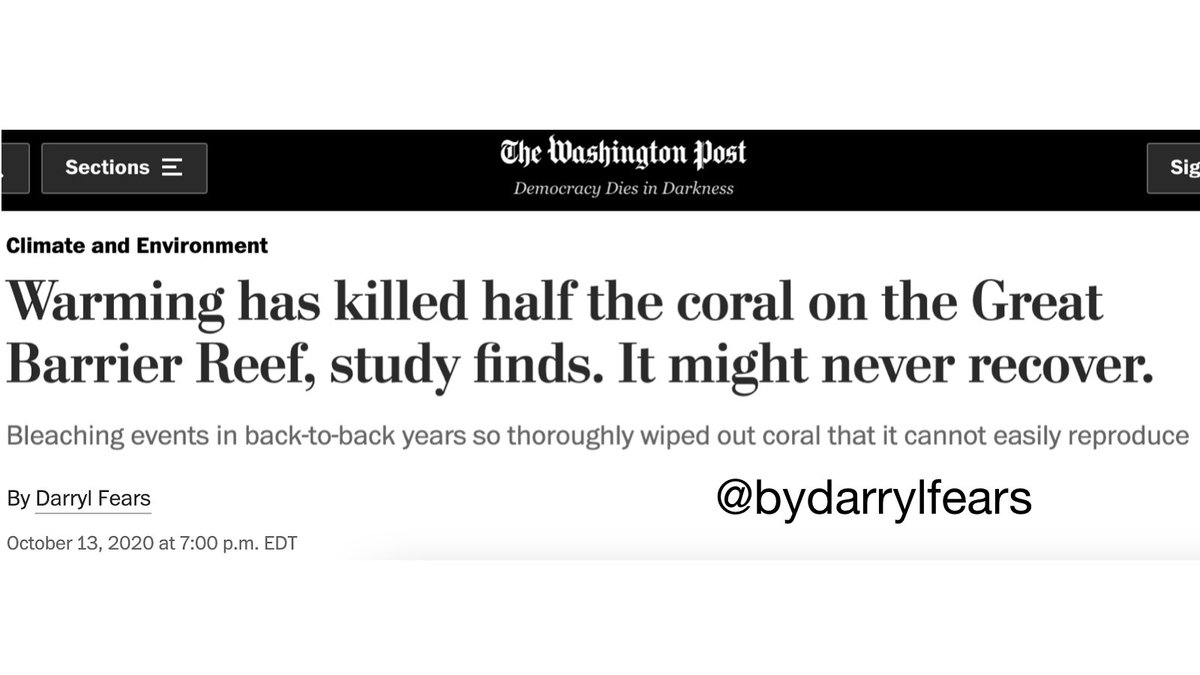
Readers of The Washington Post, I encourage you to reach out to @PostOpinions and @washingtonpost climate reporters @chriscmooney, @themadstone, @bydarrylfears and ask “Why are you denying the improvement of the Great Barrier Reef by not covering it?”
aims.gov.au/reef-monitorin…

aims.gov.au/reef-monitorin…
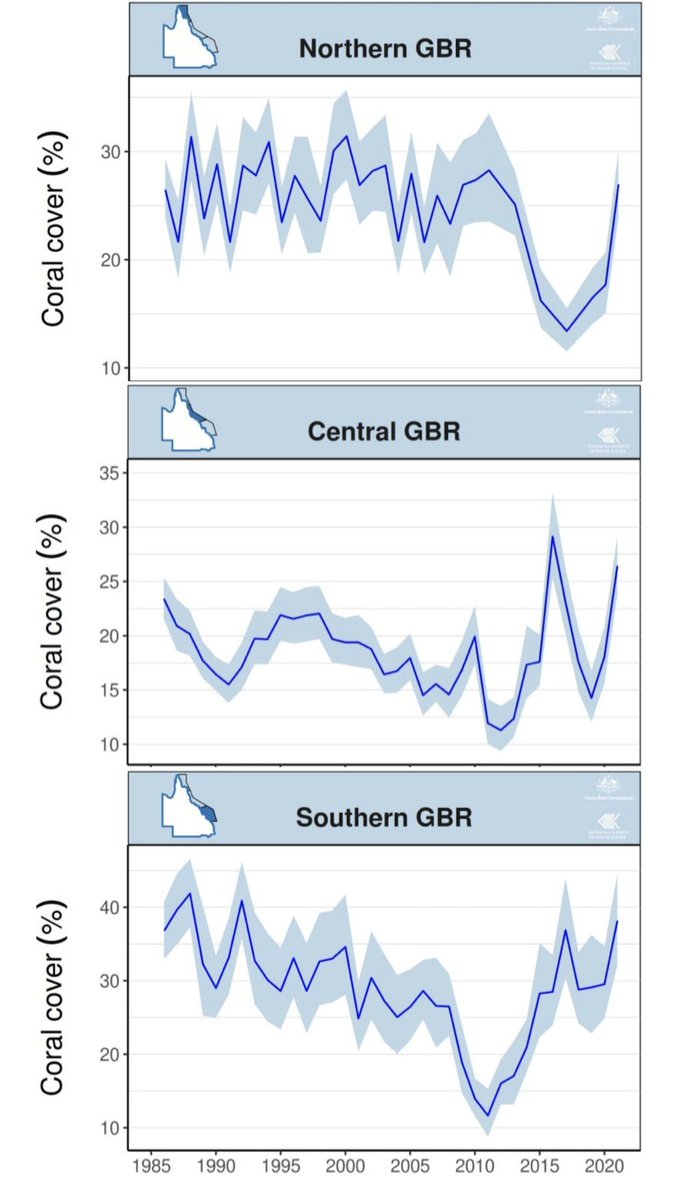
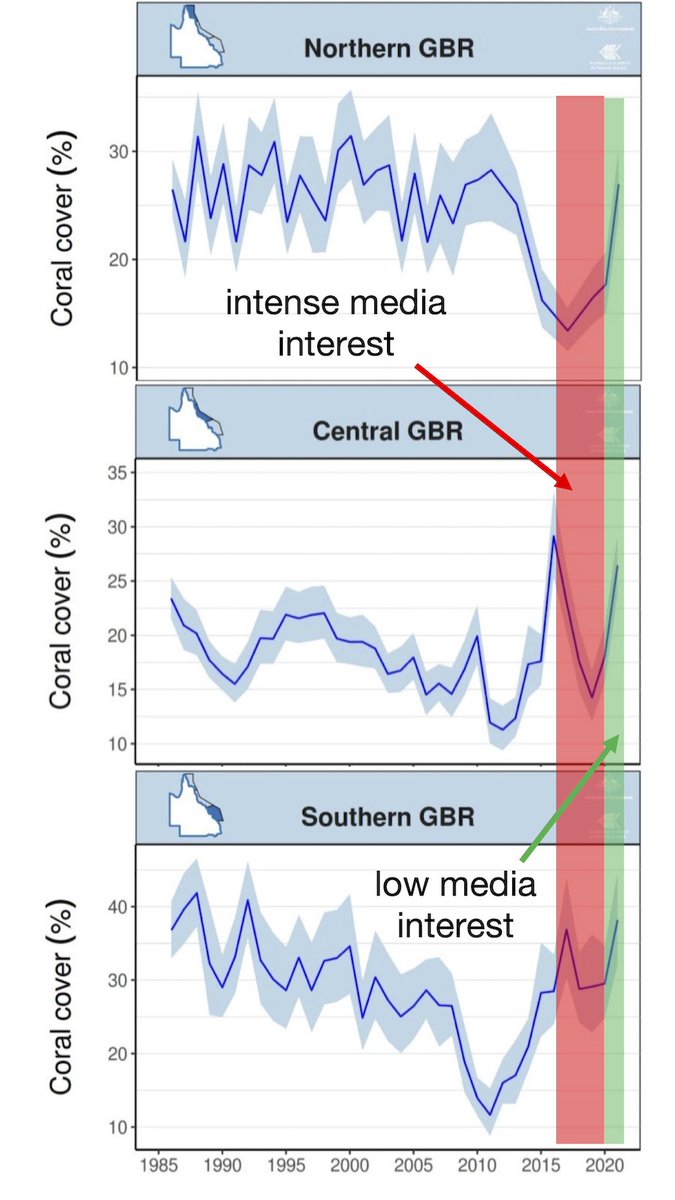
Background: From 2016-2020, the mainstream media expressed extreme concern about the fate of the Great Barrier Reef--a huge, beautiful underwater landscape, formed by corals and brimming with life--portraying it as in irreparable decline due overwhelmingly to our CO2 emissions.
The Great Barrier Reef *was* experiencing significant bleaching, but there were many causes, including unusually warm local waters, predatory starfish, storms ravaging the reef, plus bleaching from the reef's natural lifecycle.
Instead of looking at bleaching of the Great Barrier Reef in an evenhanded way, the climate media downplayed all factors except for global warming--which they claimed would do irreparable damage by leading to warmer waters that corals couldn’t recover from.
It didn't make much sense that global warming would lead to irreparable decline of the Reef given that corals have been around for 100s of millions of years, are adaptable to extreme events, are resilient thanks to a high reproduction rate, and can grow faster in warmer temps.
Given the media’s professed concern for the Great Barrier Reef, you would think that an improvement in the reef would be cause for widespread celebration. But the reef has experienced a dramatic improvement in the last years, and the never-quiet climate media have nothing to say. 

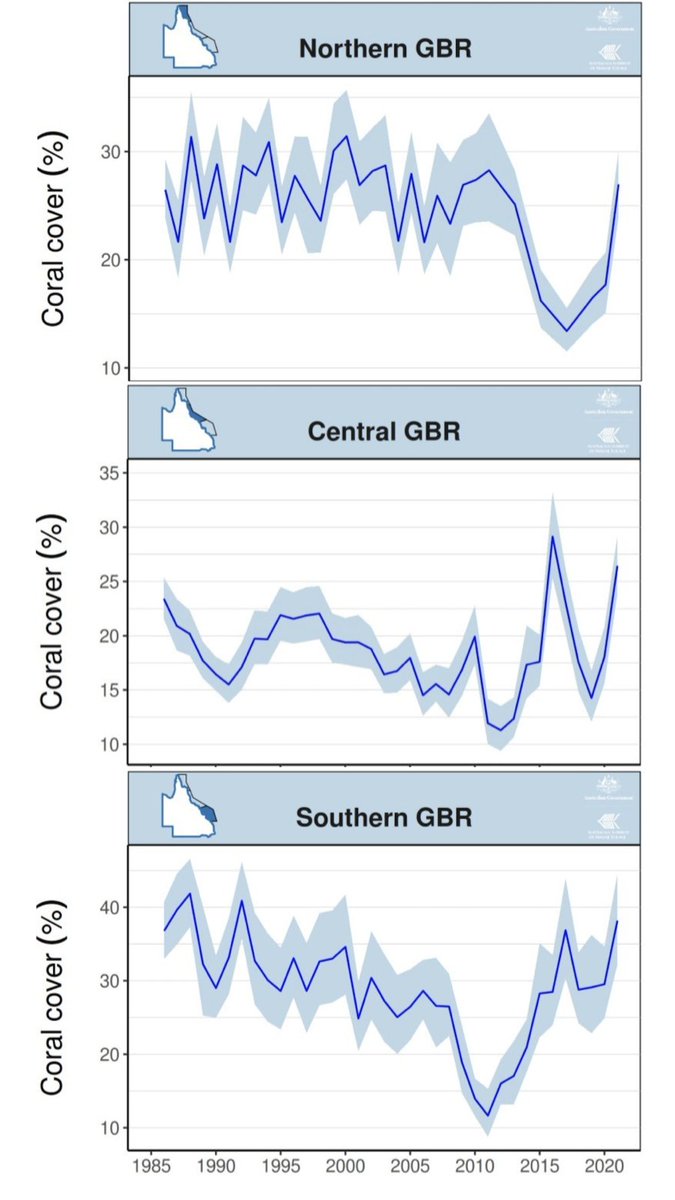
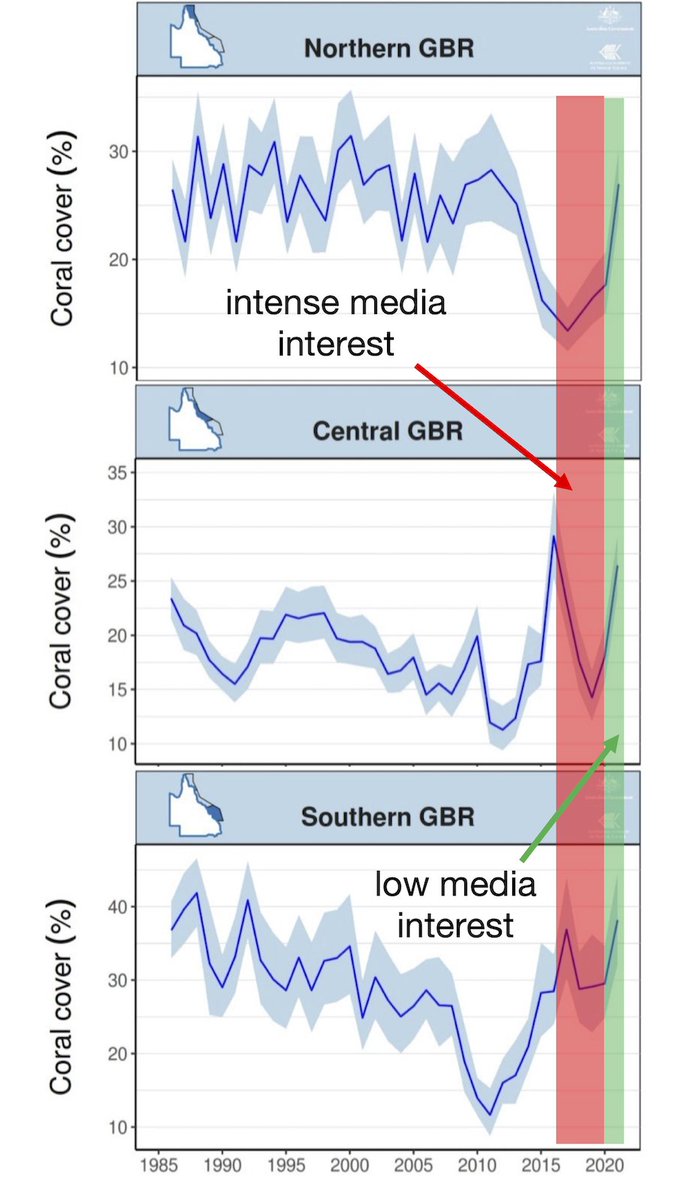
The climate media’s evasion of the Great Barrier Reef improvement confirms that they have no interest in the truth about what’s happening with climate and why. They are interested in attacking fossil fuels, attacking capitalism, and justifying vast expansions of government power.
Any science editor that covered the decline of the Great Barrier Reef but not its improvement should commit to correcting their failures--or be pressured into resigning. This includes the editors of the @nytimes, @washingtonpost, @cnn, @guardian, @usatoday, and @natgeo. 



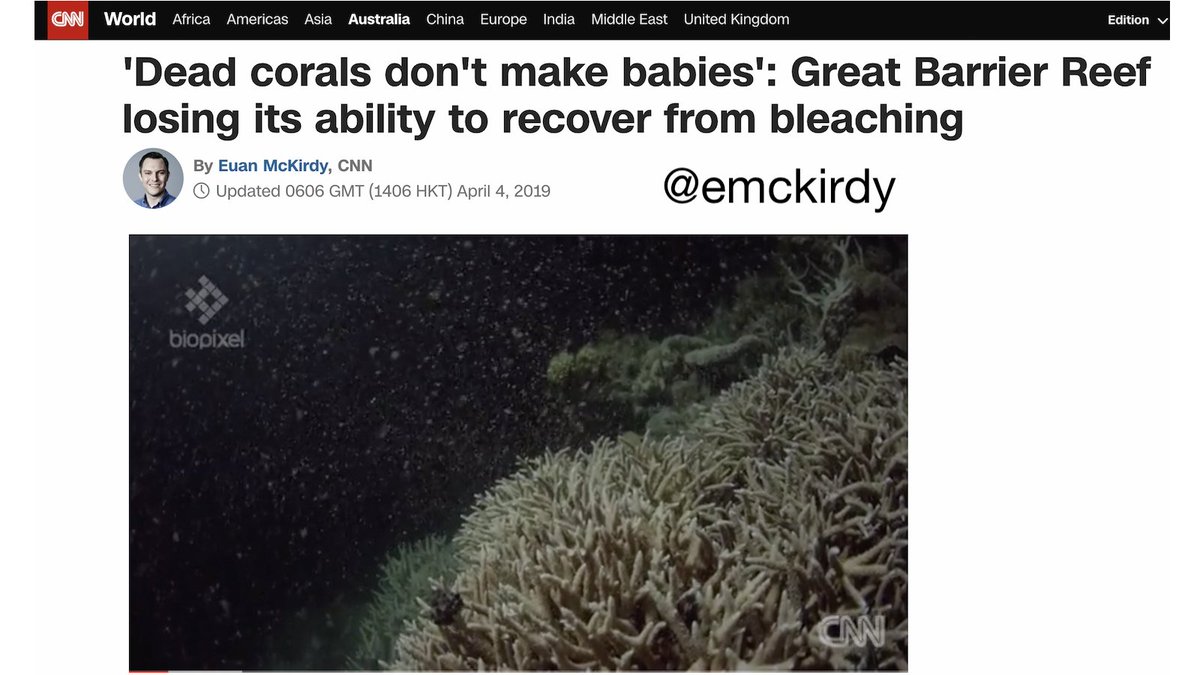
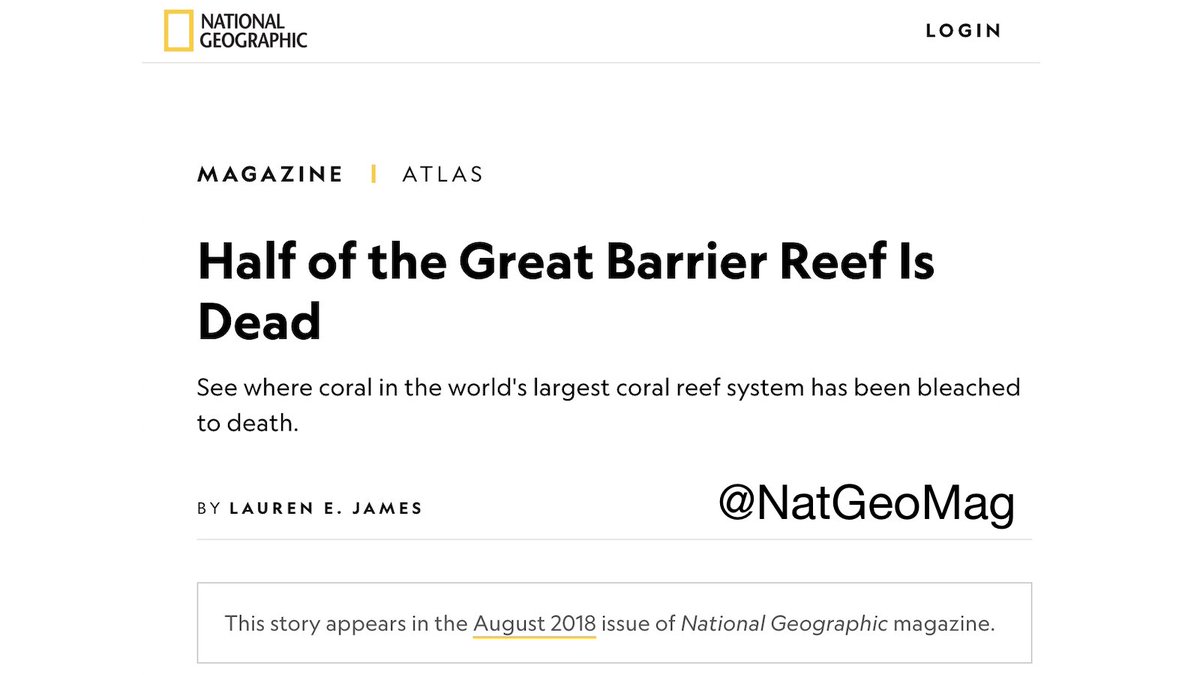
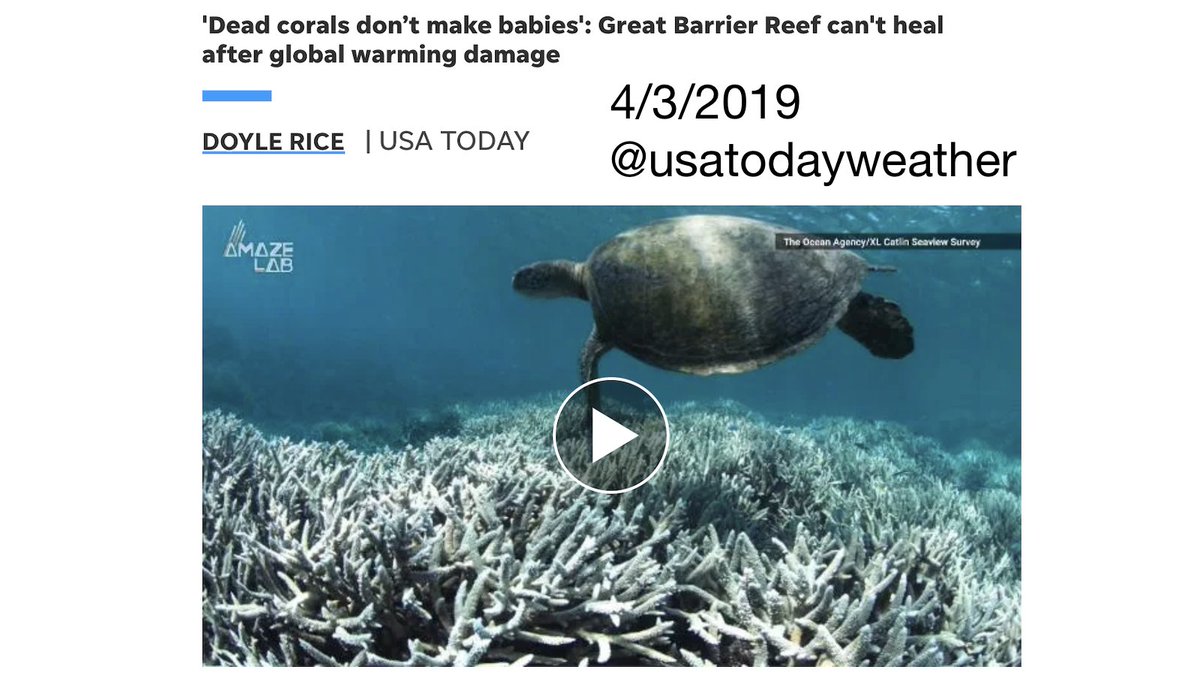
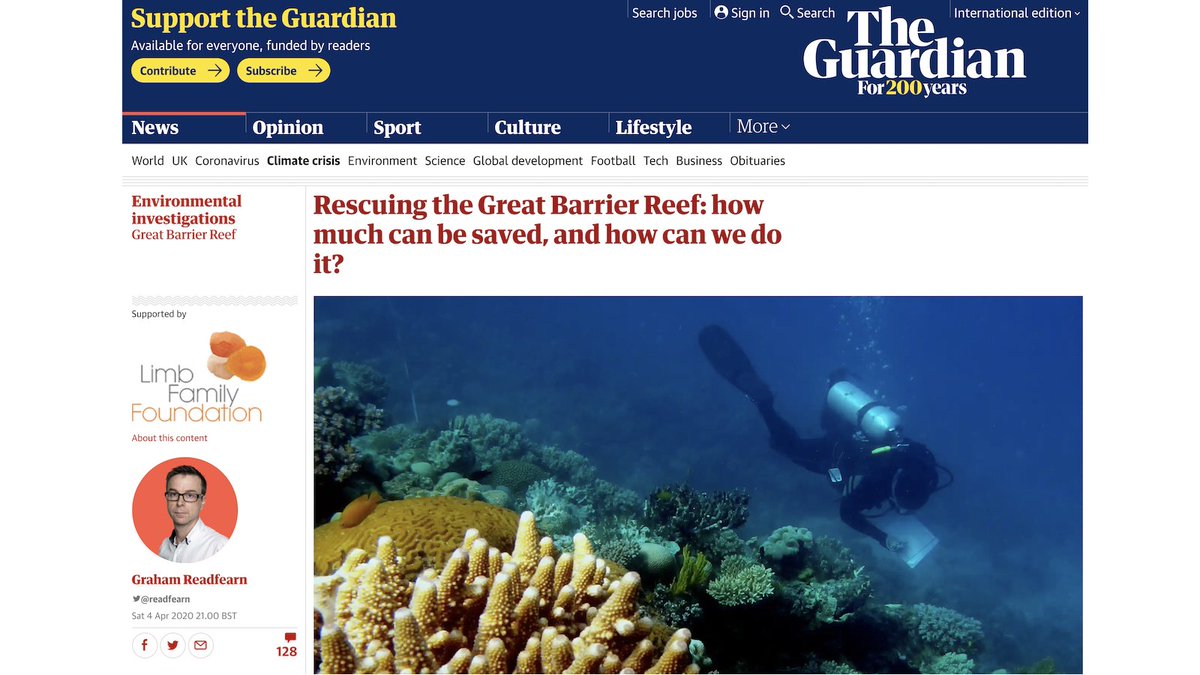
Why does it matter so much that the climate media only cover negative stories and ignore positive ones? Because it contributes to deadly energy policy by catastrophizing the side-effects of the fossil fuels that modern life depends on, while ignoring their massive benefits.
If you want to know more about why I believe fossil fuels are so crucial, and why climate catastrophizing is so dangerous, read my recent Congressional testimony.
energytalkingpoints.com/alex-epstein-c…
energytalkingpoints.com/alex-epstein-c…
Please share the story of the improving Great Barrier Reef with everyone who has publicly catastrophized about the GBR, such as @LeoDiCaprio, @MarkRuffalo, and @adriangrenier. Hopefully they will celebrate, share the good news, and walk back their climate catastrophism. 

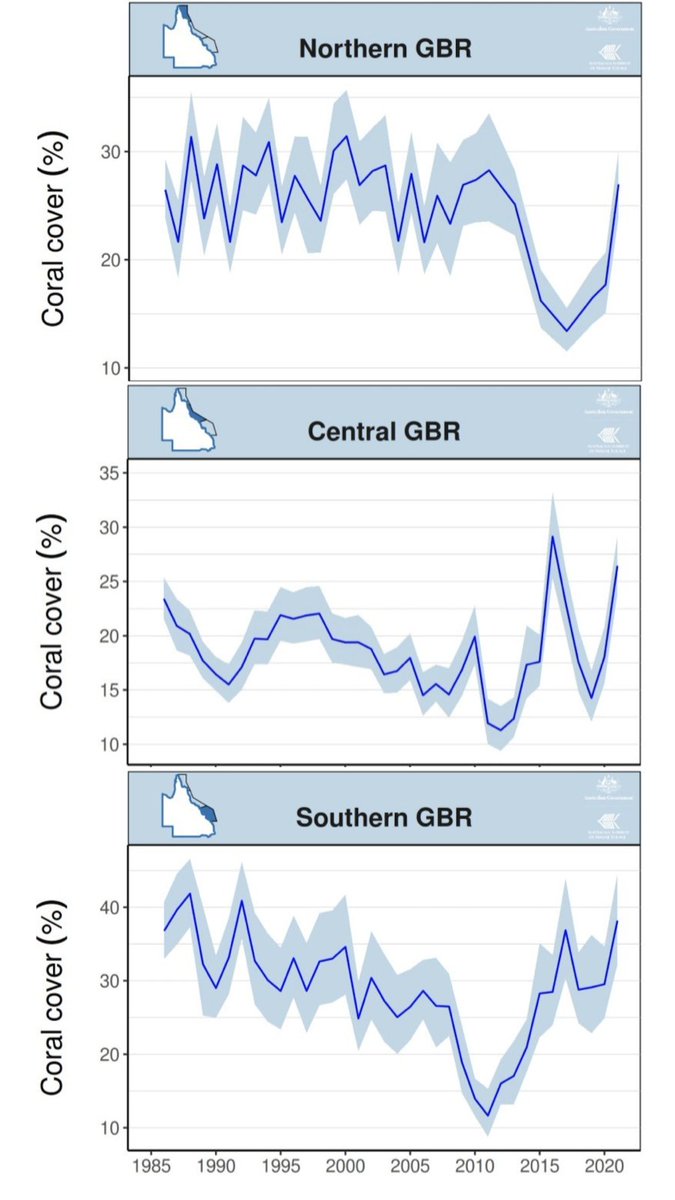
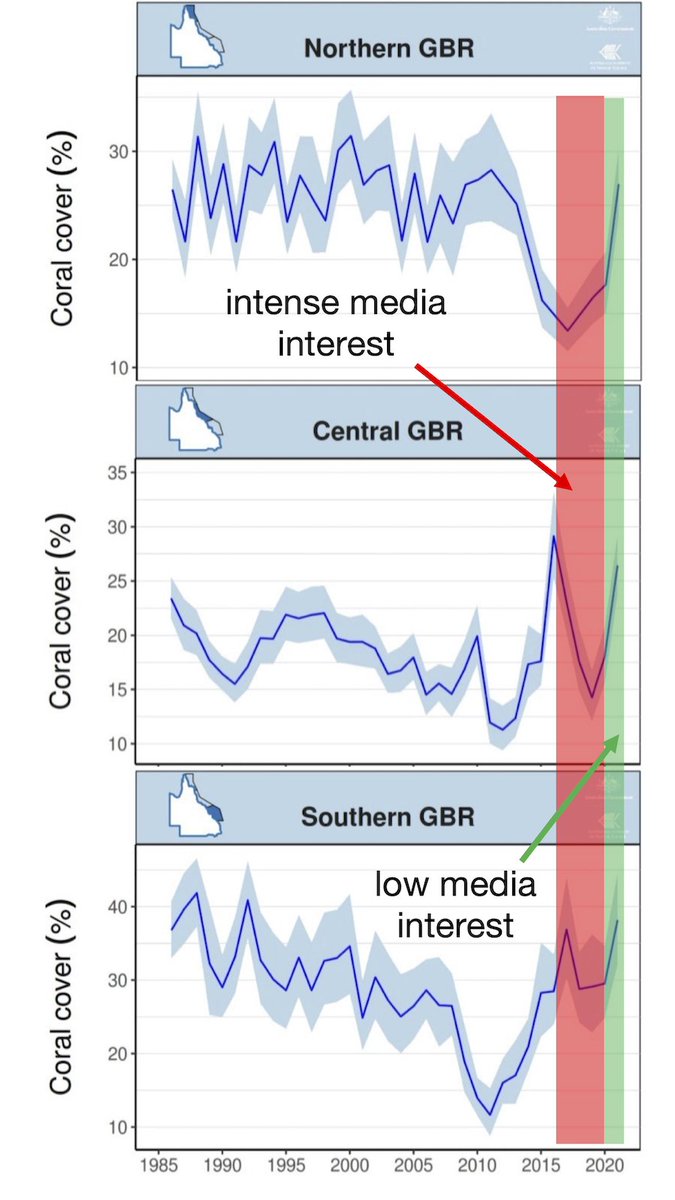
• • •
Missing some Tweet in this thread? You can try to
force a refresh


